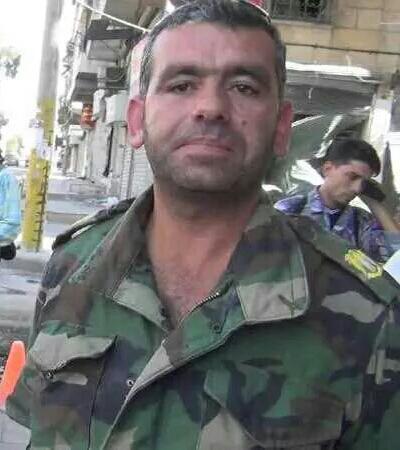
As if fear, hunger,
thirst, worry and exhaustion were not enough to endure, new trials emerged
Thursday for those on the 1,000 mile-plus trek into Europe: torrential rains
and thick mud.
About 7,000 refugees and
migrants, including many families lugging young children, braved relentless
downpours Thursday to cross Greece's northern border into Macedonia in what
Greek police said was the largest single wave they had seen so far.
At the northern village of
Idomeni, crowds gathered before dawn, using anything they could find — plastic
sheeting, garbage bags, hooded jackets, even a beach umbrella — in a futile
attempt to stay dry. Sneakers stuck in the mud. Rain dripped off hoods and
caps. All were soaked to the skin.

Parents held their children
aloft in the rain, to make sure the Macedonian police would see them and let
them through checkpoints. Other mud-splattered children dragged luggage and
stumbled into rain-filled potholes, climbing out crying.
By early afternoon, all had
crossed but thousands more were on their way, heading to the Greek mainland in
ferries.
The surge came after Greek
authorities managed to register about 17,000 people on the eastern island of
Lesbos in just a few days, speeding their trip north. Greece's caretaker
government chartered two extra ferries and sent additional registration staff
to Lesbos to ease overcrowding on the Aegean island, where more than 20,000
refugees and migrants had been living in precarious conditions after arriving
on dinghies from the nearby Turkish coast.
Greece, Italy and Hungary have
been overwhelmed this year — and especially this summer — by a flood of
refugees and migrants seeking safety in Europe. The vast majority of those
arriving in Greece are Syrians fleeing their country's vicious civil war,
followed by Afghans.
In Brussels, the 28-nation
European Union is seeking backing for plans to distribute 200,000 people among
its members, but is meeting fierce resistance from some nations. Most of those
heading north hope to settle in wealthier EU nations like Germany or Sweden.
At Idomeni, about 4,000 stood
in a muddy field early Thursday, waiting for Macedonian police to let them
across. Thousands more sought shelter under tents pitched in fields or headed
to the Idomeni train station, where they huddled around fires to stay warm. The
train station's cafe was converted into a shelter for women and children, some
of whom were running fevers.

Macedonian police formed a
human chain on the border to limit the flow of refugees into more manageable
groups, letting families with young children cross first. Occasionally they
used batons and shields to push back migrants attempting to rush through ahead
of their turn.
For some, the chaos, the cold
and the rain were unbearable. One Iraqi man was asking anyone he could find how
he could return home. He wanted to fly back to Iraq, he said, he couldn't bear
the conditions any more to reach Europe.
Abas Jizi, a 30-year-old
supermarket employee from Deir ez-Zor in Syria, huddled around a fire with his
wife and three children at the Idomeni train station, cradling his 1-year-old
son.
"I was hit by the
police" in Lesbos, he said. "The situation was very bad. We waited
for 10 days to get our papers. We got to Athens yesterday and we set off
straight away for here."
He had no choice but to leave
Syria, he said. "In my country the situation is very bad. The helicopters
fly over the city and they bomb."
Jizi is aiming to get his
family to Denmark. "I don't have anyone there but I believe I can rebuild
my life."

Waseem Absi, a 30-year-old
from Ariha in northern Syria, was aiming to reach the Netherlands and rejoin
other family members there. He had heard of problems further up the route in
Hungary, where the migrants have faced a hostile reception, but was undaunted.
"I'm not going to be
afraid of anything," he said as he trudged through the mud with four
friends, carrying an open tent to keep off the worst of the rain.
Absi reached Lesbos after
spending 20 days in Turkey.
"The conditions were
terrible, but there were more than 10,000 people. It wasn't the Greek police's
fault, they couldn't do anything with such a crowd," he said.
He said he tried to bribe
Greek police to get his registration papers faster, but no one would take the
money. He did see other people hawking registration papers for 100 euros ($112)
each.

"They were fake, they
were just photocopies," he said. "Of course I didn't take one."
 Reports since yesterday indicate that a U.S.-trained Syrian
rebel leader has deceived his American handlers and has defected to Jabhat
al-Nusra — the official al-Qaeda affiliate in Syria.
Reports since yesterday indicate that a U.S.-trained Syrian
rebel leader has deceived his American handlers and has defected to Jabhat
al-Nusra — the official al-Qaeda affiliate in Syria.

